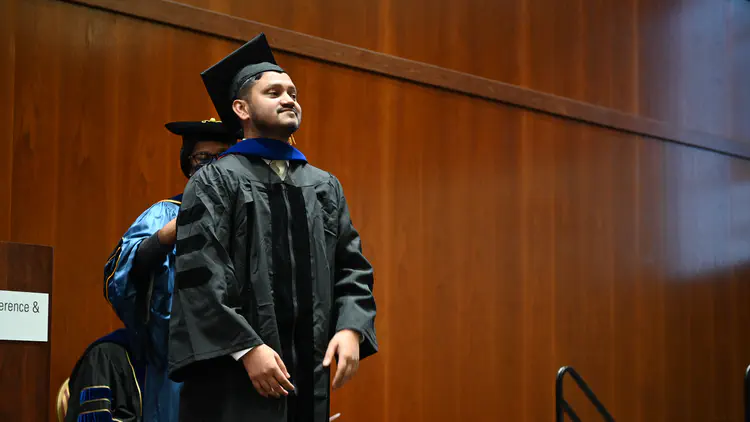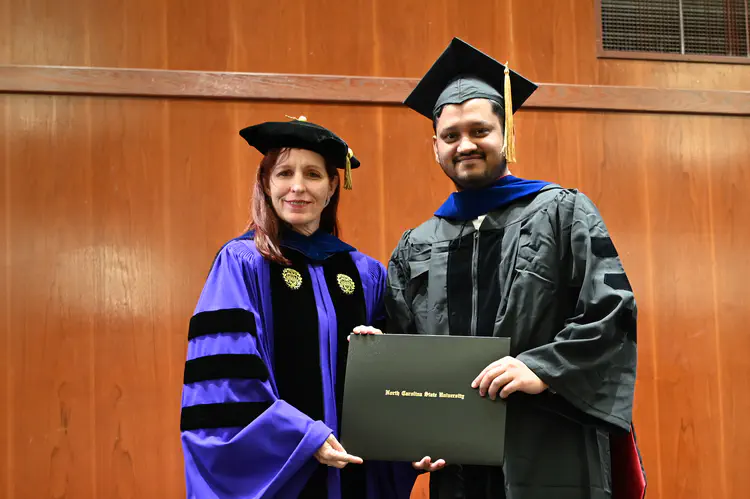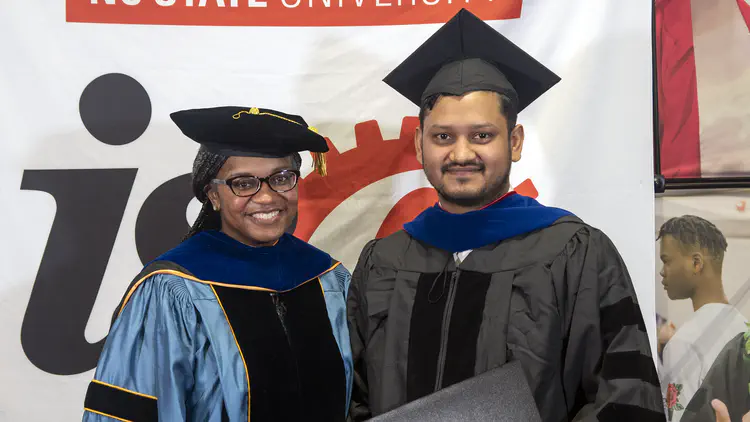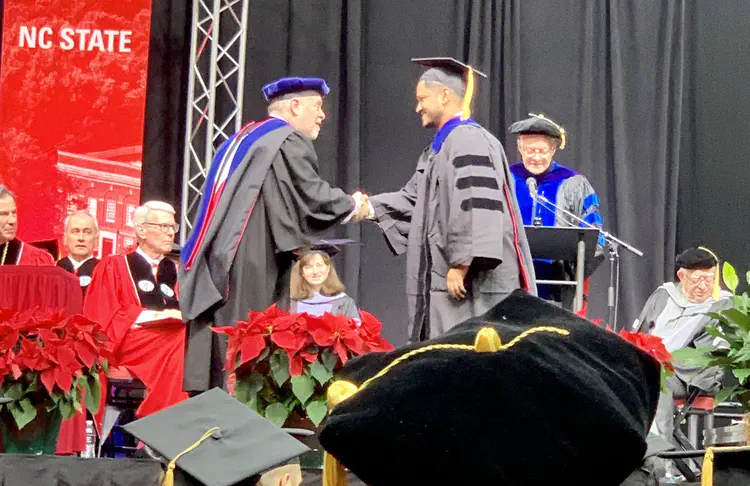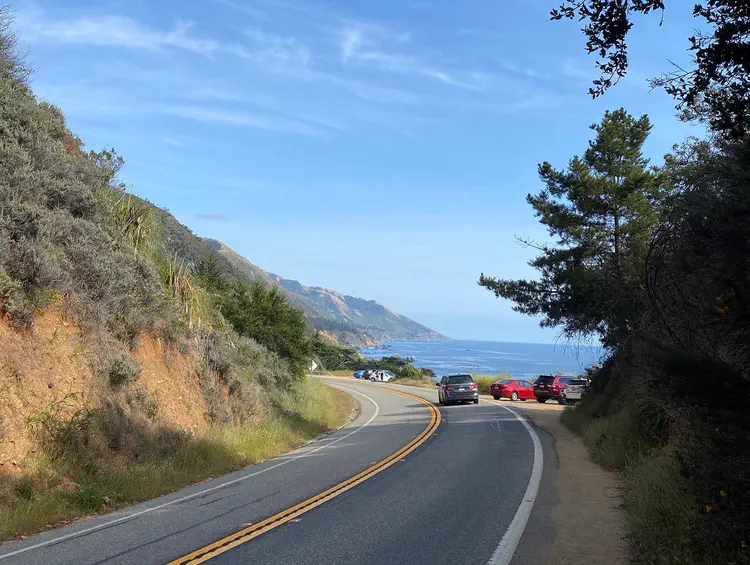I am a Senior Data Scientist in Supply Chain Analytics at Walmart located at Bentonville, Arkansas. I received my Ph.D. degeree in Industrial Engineering with a minor in Economics at North Carolina State University under the direction of Dr. Julie Ivy and Dr. Irem Sengul Orgut. My research focuses on problems that involve multiple conflicting objectives in the context of a network for donated food. My work specifically focuses on eliciting the stakeholders’ preferences or utilities in a food bank network and use them in developing the optimal distribution polices that reflect the stakeholders’ preferences.
My research appeared in journals including Production and Operations Management (POM). My paper titled “Elicitation of Preference among Multiple Criteria in Food Distribution by Food Banks” was one of the finalists in the INFORMS Minority Issue Forum Best Paper Competition - 2021 and was featured by the POMS College of Humanitarian Operations and Crisis Management. My Ph.D. thesis can be found here.
I was the team leader of the team that won the Call for Code Spot Challenge: Mental health in a time of crisis, which was hosted by IBM and other collaborating partners. Our winning project, the Decision Support System (watch a demo here), was featured in FORBES, WUNC, and NCSU News. I also several other data hacathons including Feeding America Supply Chain Data Analytics Competition 2021, hosted by Loyola University in Chicago. I was also the winner of 3-Minutes Thesis Competition in the NRT Conference arranged by North Carolina A&T State University.
I am an active member of the Institute for Operations Research and Management Science (INFORMS).
Experience
- Developing network optimization models for various parts of Walmart supply chain with a goal to minimize different cost components (transportation cost, holding cost etc.) and other business-oriented criteria.
- Developed a Mixed-Integer Linear Programming model as a sourcing solution (identifying the facility, carrier method, and route) for Walmart online customer orders.
- Developed a Linear Regression Model to predict the transportation cost of a package based on package weight and dimensions.
- Developed optimization models to produce the optimal distribution policy in Python and CPLEX for the food banks. The models consider equity, effectiveness, and efficiency, 3 criteria maintained by the food banks.
- Developed interactive network graphs (geomaps) in Python to visualize the optimal distribution policy to assist food banks visually in their distribution decision-making process.
- Managed the product orders received in prod.com and/or SAP from the warehouses around the world.
- Maintained the production planning of the received orders to ensure on-time production and delivery.
Skills
Experience over 4 years
Highly proficient
100%
Featured Publications
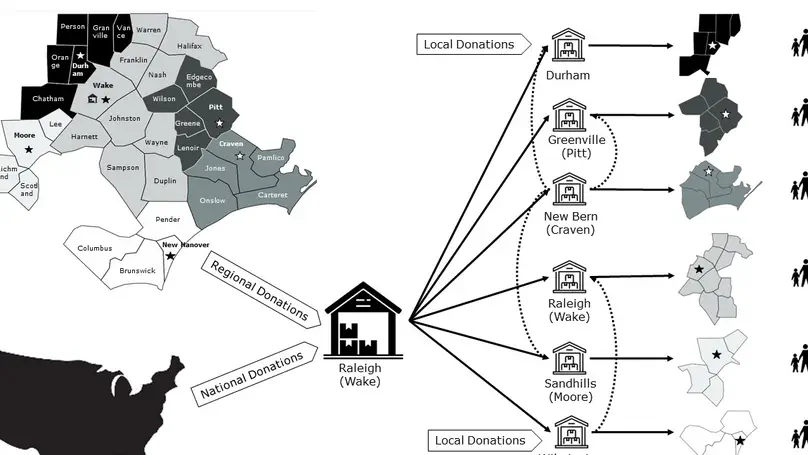
The United Nations Sustainable Development Goals provide a road map for countries to achieve peace and prosperity. In this study, we address two of these sustainable development goals: achieving food security and reducing inequalities. Food banks are nonprofit organizations that collect and distribute food donations to food-insecure populations in their service regions. Food banks consider three criteria while distributing the donated food: equity, effectiveness, and efficiency. The equity criterion aims to distribute food in proportion to the food-insecure households in a food bank’s service area. The effectiveness criterion aims to minimize undistributed food, whereas the efficiency criterion minimizes the total cost of transportation. Models that assume predetermined weights on these criteria may produce inaccurate results as the preference of food banks over these criteria may vary over time, and as a function of supply and demand. In collaboration with our food bank partner in North Carolina, we develop a single-period, weighted multi-criteria optimization model that provides the decision-maker the flexibility to capture their preferences over the three criteria of equity, effectiveness, and efficiency, and explore the resulting trade-offs. We then introduce a novel algorithm that elicits the inherent preference of a food bank by analyzing its actions within a single-period. The algorithm does not require direct interaction with the decision-maker. The non-interactive nature of this algorithm is especially significant for humanitarian organizations such as food banks which lack the resources to interact with modelers on a regular basis. We perform extensive numerical experiments to validate the efficiency of our algorithm. We illustrate results using historical data from our food bank partner and discuss managerial insights. We explore the implications of different decision-maker preferences for the criteria on distribution policies.
Recent Publications
Projects
Recent & Upcoming Talks
Popular Topics
Contact
- tanzidipe09@gmail.com
- Bentonville, AR 72712





